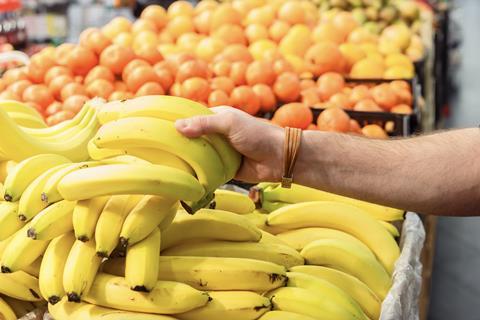Bananas, avocados, tomatoes and oranges among multiple fruits to gain relief as US president rolls back reciprocal tariffs on more than 100 agricultural products
US president Donald Trump signed an executive order on Friday (14 November) exempting a wide range of food products – including bananas, tropical fruits, tomatoes and oranges – from reciprocal tariffs his administration imposed on 2 April.

The order removes reciprocal tariff rates, which are a baseline of 10 per cent on imports from all countries, rising as high as 50 per cent for some trading partners.
Beef, coffee, tea, nuts and spices are among the other food products to escape the sweeping tariffs.
The exemptions took effect retroactively at midnight on Thursday 13 November.
The move comes as the Trump administration faces mounting pressure from consumers over high grocery prices, with affordability becoming a growing political issue.
The so-called reciprocal tariffs were levied in April to address what Trump described as “large and persistent trade deficits”, which posed a “national emergency”.
He and his administration have maintained that the tariffs do not increase consumer prices, despite evidence to the contrary.
In the executive order published on Friday afternoon, Trump said “current domestic demand for certain products” and domestic production capacity led him to determine it was “necessary and appropriate” to modify the tariffs. The tariff exemption targets foods that are not produced in the US or cannot be produced in sufficient quantities domestically, according to The White House statement.
A wide range fruits are no longer subject to the levies, including bananas, avocados, oranges, guavas, limes, mangoes, pineapples, coconuts, plantains, various peppers and tomatoes.
The order does not entirely exempt these goods from tariffs, however. For instance, tomatoes from Mexico, a leading supplier to the US, will continue to face a tariff of 17 per cent. The rate took effect in July after a long-running trade agreement expired. Around two-thirds of US tomato supply is imported, with Mexico typically accounting for the vast majority, and retail prices increased as soon as the levy took effect.
Latin America trade deals to cut banana tariffs
In another move to address consumer concerns about food prices, the Trump administration has said import duties on bananas and coffee will be reduced as part of trade deals with four Latin American countries.
The framework agreements with Argentina, Ecuador, El Salvador and Guatemala – announced on Thursday – will see Washington drop tariffs on imports of some food products and other goods, while those countries will open their markets to more US agricultural and industrial goods.
Under the initial framework, a reciprocal tariff of 10 per cent will stay in place on goods from Guatemala, Argentina and El Salvador, as will a 15 per cent duty on imports from Ecuador. But the deals will exempt products that the US cannot grow enough of.
Ecuador, which is one of the biggest banana exporters to the US, has agreed to remove or lower tariffs on a wide range of products including fresh fruit and nuts under the deal. It has also agreed to reduce non-tariff barriers for US agricultural goods.
In exchange, the US will cut tariffs on bananas from Ecuador as well as several other products that cannot be grown or produced in sufficient quantities in the US, such as coffee.
Details of the agreements are expected to be released in the coming weeks after the framework deals are finalised.



